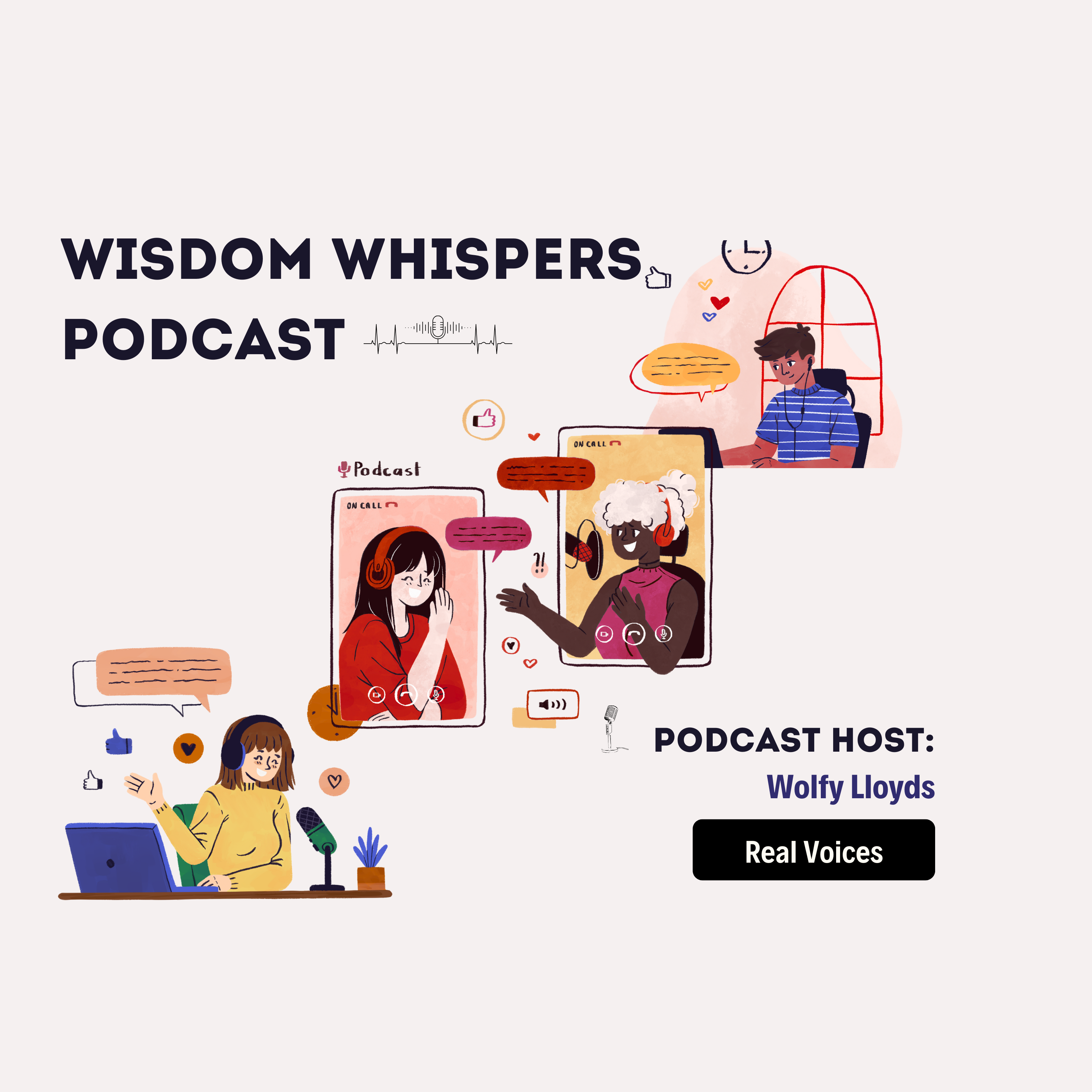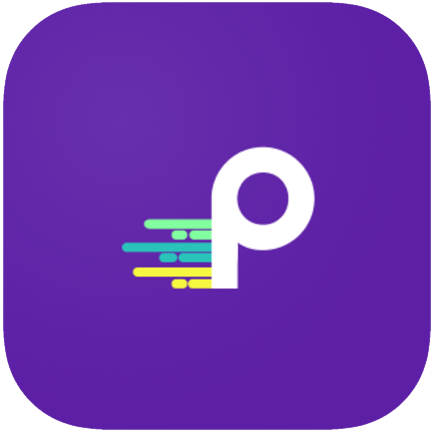

Choosing Your Engineering Path: STEM Careers Explained with Dr. Safia
Suited Tutor Podcast
| Wolfy Lloyds | Rating 0 (0) (0) |
| https://suitedtutor.com | Launched: Jun 05, 2025 |
| care@suitedtutor.com | Season: 1 Episode: 5 |
In This Episode:
[00:00] Welcome by host Wolfy Lloyds
[01:20] Meet Dr. Safia – From civil engineering to PhD in aviation
[03:00] What is STEM and why it matters
[04:30] Main branches of engineering explained: Civil, Mechanical, Electrical, Chemical, and more
[08:20] How to choose the right engineering discipline
[12:15] Common misconceptions about engineering
[15:00] Real-world career outcomes after studying engineering
[17:30] How Suited Tutor supports engineering students
[20:00] Final advice: Stay curious, explore, and don’t fear pivoting
[22:00] Learn more about Suited Tutor’s STEM tutoring & resources
📚 Resources Mentioned:
-
CAD (Computer-Aided Design) tools
-
MATLAB software
-
STEM summer camps
-
Suited Tutor’s 1:1 academic support
-
Engineering admissions prep
-
Affiliate and peer tutoring opportunities
📌 About Suited Tutor
Suited Tutor is a UK-based elite tutoring platform offering one-to-one and online tuition for 11+, Grammar School, National 4 & 5, GCSEs, A-Levels, and university admissions in subjects like Maths, Physics, Coding, and Engineering. Whether you're preparing for UCAS or building foundational STEM skills, we’re here to help.
🌐 Visit: www.suitedtutor.com
📍 Based in Oxford, supporting learners UK-wide
📱 Follow us: Instagram, Facebook, YouTube, LinkedIn – @suitedtutor
In This Episode:
[00:00] Welcome by host Wolfy Lloyds
[01:20] Meet Dr. Safia – From civil engineering to PhD in aviation
[03:00] What is STEM and why it matters
[04:30] Main branches of engineering explained: Civil, Mechanical, Electrical, Chemical, and more
[08:20] How to choose the right engineering discipline
[12:15] Common misconceptions about engineering
[15:00] Real-world career outcomes after studying engineering
[17:30] How Suited Tutor supports engineering students
[20:00] Final advice: Stay curious, explore, and don’t fear pivoting
[22:00] Learn more about Suited Tutor’s STEM tutoring & resources
📚 Resources Mentioned:
-
CAD (Computer-Aided Design) tools
-
MATLAB software
-
STEM summer camps
-
Suited Tutor’s 1:1 academic support
-
Engineering admissions prep
-
Affiliate and peer tutoring opportunities
📌 About Suited Tutor
Suited Tutor is a UK-based elite tutoring platform offering one-to-one and online tuition for 11+, Grammar School, National 4 & 5, GCSEs, A-Levels, and university admissions in subjects like Maths, Physics, Coding, and Engineering. Whether you're preparing for UCAS or building foundational STEM skills, we’re here to help.
🌐 Visit: www.suitedtutor.com
📍 Based in Oxford, supporting learners UK-wide
📱 Follow us: Instagram, Facebook, YouTube, LinkedIn – @suitedtutor
Are you navigating the world of engineering career paths or wondering how to go about choosing an engineering degree? In this episode of the Suited Tutor podcast, host Wolfy Lloyds sits down with Dr. Safia - an inspiring role model among female engineers in STEM—to explore the exciting world of STEM education in the UK.
Together, they break down the differences between key disciplines like civil vs mechanical vs electrical engineering, helping students and parents make informed choices about university applications and career trajectories. Whether you're passionate about infrastructure, energy systems, or future technologies, this episode will help you clarify your direction.
Dr. Safia also shares insights on STEM university preparation, from mastering GCSE maths for engineering to using tools like CAD and MATLAB. She discusses how Suited Tutor provides personalised engineering tutoring support, and how our team of expert online engineering tutors in the UK can boost your confidence and academic outcomes.
You’ll also hear about enrichment opportunities, including STEM summer programs, mentoring, and university admissions coaching. If you’re aiming to stand out in your engineering university admissions, this episode is packed with practical advice and motivation.
🎓 Whether you're a student exploring options, a parent supporting a young learner, or an educator seeking guidance resources, this episode offers valuable perspectives to help you engage, inspire, and achieve.
Hi everyone and welcome to another episode of Wisdom Whispers, where we support students, diligent tutors, caring parents and, I would say for most, educational enthusiasts with expert advice and real insights into academic and career success. I'm your host, Wolfy Lloyds, and today we are diving into a very exciting, I would say, and often confusing topic for some, obviously, students preparing for university. Okay, university, that's a big deal, obviously. And the topic today is going to be choosing your engineering path. We are feeling overjoyed today because we have one of our top PhD tutors, doctorate tutors at Suited Tutor, the one and only, the brilliant Safia, who is here to demystify the different branches of engineering and help me, you and everyone else understand what each path entails and then offers. So, whether you're an ambitious student, a parent trying to support your child, or even a tutor or educator guiding others, I think and I believe this episode is for you. Now, Safia, it's amazing to have you here. Now, could you start by telling our audience a bit about your journey in engineering and how did you become involved with Suited Tutors in the first place? Over to you.
Спикер 2: Thank you so much, Wolfy. Absolutely. I recently completed my PhD in aviation management, and I have a degree in civil engineering. So while studying engineering, I realized that I'm passionate about mentoring, tutoring, and essentially making STEM subjects accessible to students from all backgrounds. And this is why I joined Suited Tutors. Over the years, I have tutored many students in maths, physics, and related engineering topics. I know how overwhelming it can be to choose an engineering field when you're just starting out. So I'm excited to unpack that today.
Спикер 1: Now, Safia, for some you may sound obvious, but could you please tell us what exactly STEM stands for and what this acronym means exactly?
Спикер 2: STEM stands for Science, Technology, Engineering, Maths.
Спикер 1: Okay, thank you, Safia. So, okay, so now since we managed to give a bit of an introduction and you managed to share about your beautiful background, let's get into it. And now, Safia, I'm being inquisitive and I would say some people may call me nosy. So what are the main branches of engineering that, let's say, the majority of students tend to choose or select from? What do you suggest, Safia?
Спикер 2: That's a great question. The big three are civil engineering, mechanical engineering, and electrical engineering. And I'll give a brief idea of all three. Civil engineering is mainly infrastructure. So you can think roads, bridges, buildings. It's very hands-on and project-based. We've got mechanical engineering that deals a lot with machines and motion. So you can think cars, engines, robotics. And then electrical engineering, as Naveen suggests, it's a lot on electrical. electrical science, electronics, circuits, power systems, and even telecommunication like antennas, satellites. Wow. Chemical engineering is also a relevant field. It has become very relevant in the past decade. So chemical engineering involves processes and materials, developing pharmaceuticals, food production, sustainable fuels. As technology improved, we've got other branches that have been growing in importance as well. So software engineering or computer engineering has a lot of growth now. Environmental engineering, biomedical engineering, aerospace engineering, as you can see, there's a lot to explore. Each has its own focus, skill set, and career outcomes. And I think that we can explore that a bit today.
Спикер 1: Okay, now you're talking. I think it's a big and wide variation of options. It's not just engineering or engineering, but there are lots of different fields that people can explore and some more current trends. Okay, now, Safiya, speaking of, so I'm a student who has no clue and let's imagine, let's that I love maths and I don't know exactly what is the right discipline for me, let's imagine. How would I tackle this best exactly? What do you suggest, Safiya?
Спикер 2: I would always suggest starting with what excites you. As in when challenges come up, it is actually the interest in the subject that pushes you forward. So always start with something. Just find out what excites you. For example, do you love problem solving with tangible results that you can actually like see or feel? Civil or mechanical engineering might be your thing. Or are you into gadgets, coding, or electronics? Then electrical engineering or software engineering could actually be a great fit for you. Apart from trying these things out, trying to understand what catches your interest, I would also recommend a few things like talking to tutors. For example, those at SutaTutor who will already have done engineering, some of them, so they can offer you some subject insight. You can try out summer courses or STEM camps. So they might be focusing on robotics or electronics, so you can like gauge your interest by trying out some of those courses. watching engineering YouTube channels or listening to podcasts like this. I think this was something I did myself when I was growing up in terms of understanding which branch of engineering I want to choose. And then reading, reading about real-world projects can actually help you understand the impact of engineering on real-life problems. I remember when Burj Khalifa was being built, there was this article about how the top of the building needs to be very thin in order to manage the wind. That's something that I found very interesting, and it only made sense that I wanted to do civil engineering. because I found that very interesting. Yeah, that's true. So reading helps a lot. And parents can also play a big role. So parents can support curiosity. They can help their children explore these different ways so that they know what they want to do or which branch of engineering they want to do.
=Thank you, Safia, and that was powerful, even including your personal life story. So I think that's why we have managed to bring Safia, so she would be able to demystify all these riddles and questions that are in the air. Okay, so as we have briefly touched base, Safia, there are some, or I would say many misconceptions about engineering. So could you please share with us what are the major ones or the big ones? Could you just shed some more light?
Of course. I think a major one is that you have to be like a genius at math.
Okay.
I think math is integral, yes. But it's also about problem solving and logical thinking. For example, most of the mathematical concepts that are used to solve very difficult civil engineering problems are actually from GCSE and A-level maths. Just a simple example. Figuring out how thick, you know a bridge, right?
A bridge will have... Okay, we're getting there.
Figuring out how thick those pillars of a bridge need to be. All it requires is to know vectors, geometry, and solving equations. And as we all know, all of it is actually covered in school level math.
Interesting.
Another myth is that engineering jobs are very technical. What engineering gives you is the technical knowledge to manage big projects in the real world. Many engineers actually go into project management, consulting, and even entrepreneurship. We'll have the technical knowledge, but there's so much more that you can do with that knowledge. The field is very flexible, in my opinion. Fascinating. And another one misconception is that many think that choosing one discipline, civil engineering, locks you in. But in reality, there are a lot of overlap and opportunities to pivot. So I started with civil engineering, and that is still my core knowledge specialization. But I've gone into now airports and airport management. So the world is your platform and like you can always pivot into something that catches your interest.
Got it. So basically, Safia, you're trying to suggest that even if you choose one branch, you can easily utilize your transferable skill set and knowledge so you can explore different avenues going forward. So that, as you just mentioned profoundly, your world is your oyster, regardless if you're swimming or not. Although it's a bit of a sea, it's an environmental item or not. Okay. So, okay, now we're getting towards the nitty-gritty components, Safia, so let's brace ourselves. So what kind of careers can students exactly expect after studying engineering, whether it's going to be a bachelor's, a master's degree, or perhaps a doctorate, just like yours? Could you please share with us some more insights?
Yeah, it's actually very diverse in terms of career. You can become a design engineer, an engineering consultant, a biomedical researcher, system analyst. So it's depending on which branch you choose. So for example, in civil engineering, you can get into building design, you can get into transportation, you can become a site engineer where you oversee buildings being made or any sort of projects being made into reality. So essentially studying engineering trains you to be a problem solver, you learn to identify problems, find possible solutions to it. It also like focuses on simplifying something or finding out how to make something efficient. So as a result, I think engineering graduates are highly employable because they're trained in certain transferable skills, like critical thinking, teamwork, and analytical skills. So there's a lot of possibilities out there. And with platforms like suited tutor, students can also become peer tutors. Helping others. So even during my undergrad, we used to have a weekly tutoring for young children around the university where I studied. So like helping others while reinforcing your own knowledge, that's also something you can do. And like a tutor tutors, you can even like earn through affiliate programs and such. We also have students and tutors exploring international careers or research through their connections. So I went into research after my degree in civil engineering, and I even moved countries for that. So there's a lot of possibilities, I would say.
Okay, now, for those aspiring, and I would say optimistic and quite enthusiastic learners, exactly, Safia, let's talk about how could Sudee Cheetahden help engineering students out there. What do you think? What do you suggest, in your humble opinion?
Of course, I think student tutor can help. At student tutor, we offer a lot of things. There's the tailored one-on-one tutoring in subjects like maths, physics, coding, which will actually help you not just at a GCSE or A-level maths, but then you can see it being helpful as you go on to do your engineering. There's also university admissions preparation for engineering courses. You can get help with that. You can also develop practical skills. For example, CAD, which stands for Computer Aided Design, MATLAB, which is another software used in engineering, different branches, in fact, or coding. So Suited Tutor can help you with that as well. And of course, for general study strategies or exam preparation, I think tutor tutors are suitable for that as well. And along with that, we also got the program. Students, tutors, and even parents can actually earn by referring others. I think it's a win-win for building a supportive learning community.
Absolutely, and thank you so much, Safia, for all these insights when it comes to providing tailored tutoring support, university preparation, practical skills, like you mentioned, CAD and MATLAB, I think it's Wolfram, MATLAB, and also strategy, study strategy, exam prep tips, obviously. Now, okay, Sophia, so apart from this information, are there any final tips that you would be able to share from your kind heart with our audience? Any last words of wisdom?
Just remember you don't need to have it all figured out. Explore your interest, ask questions, try different things, but don't be afraid to pivot. And of course, don't hesitate to connect with us at suitedtutor.com for guidance. We are here to support you every step of the way.
Amazing stuff here, honestly amazing. Okay, so everyone, if you enjoyed this episode, make sure to follow us and share with fellow students, a parent, your besties, and check out suitedtutor.com for more resources. Until next time, keep learning, stay curious, and for most, always believe in your potential.















